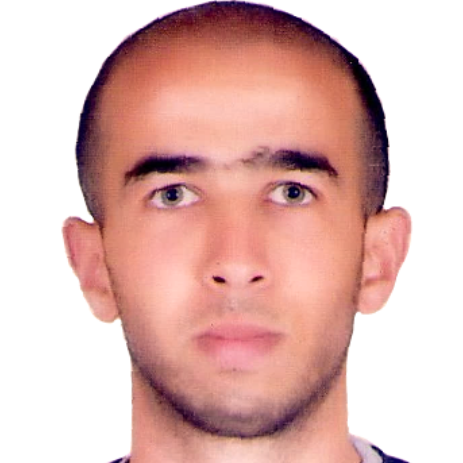
Oussama Derni
Work place: Department of Computer Science, University of Mustapha Stambouli, Mascara, 29000, Algeria
E-mail: o.derni@univ-mascara.dz
Website:
Research Interests: Computer systems and computational processes, Artificial Intelligence, Solid Modeling, Database Management System
Biography
Oussama Derni was born on August 11, 1992. He received the B.Sc. and M.S. degrees from Mustapha Stambouli University, in 2014 and 2016, respectively.
Currently, he is a PhD student of computer science at the University of Mustapha Stambouli, Mascara, Algeria. His current field of research focus on modelling and optimization of socio-economics organizations. His study interests include, system modeling, flow management, stochastic models, artificial intelligence and discrete-event-simulation. He is also interested in all kind of researches related to optimization and enhancement of dynamic systems.
Author Articles
An Advanced Heuristic Approach for the Optimization of Patient Flow in Hospital Emergency Department
By Oussama Derni Fatma Boufera Mohamed Faycal Khelfi
DOI: https://doi.org/10.5815/ijisa.2019.09.04, Pub. Date: 8 Sep. 2019
Hospital institutions are one of the most serious organizations over the world, due to their core duty in saving lives, by providing healthcare in an efficient and swift way. Emergency Department (ED) is the main entrance to the hospital, which takes on charge the primary treatment of patients under a time restriction. Many recent studies focused on minimizing the patient Length Of Stay (LOS) by extending resources or altering ‘ED’ organization (medical teams, scheduling, etc.), without defecting the fundamentals processes. The objective of this study is to improve patient care quality. The improvement is based on resource extending, in order to determine the suitable amount of resource to be added, a Fuzzy Logic system was designed to calculate the target improvement appropriated with the amount of resource and the number of incoming patients. Then, a colored Petri net simulation model was built to measure the reached improvement by comparing it to the current system state. The case study was realized at the ‘ED’ of Benaouda Benzerdjeb Hospital, located in Oran city, Algeria. As the results of this study, the total patient length of stay inside the ‘ED’ was minimized, as well as the rate of treated patients.
[...] Read more.Modeling and Optimizing Patients’ Flows Inside Emergency Department based on the Simulation Model: A Case Study in an Algerian Hospital
By Oussama Derni Fatma Boufera Mohamed Faycal Khelfi
DOI: https://doi.org/10.5815/ijieeb.2019.04.03, Pub. Date: 8 Jul. 2019
In Algeria, as in many other countries, the Emergency Department (ED) of the hospital, is the main entrance to the hospital, which provides Healthcare to patients threatened with death, and which faces several issues, emphasized by resource limitation. Our work presents a description of patient flow inside the ‘ED’ of Chalabi Abdelkader Hospital, Mascara, Algeria. This study aims to prevent the care complication scheme by adopting a workflow approach in order to design the patient flow in the chosen ‘ED’. The objective is to enhance patients’ flows, to improve the quality of the patient supervision, by targeting the minimization of the total and waiting times. A simulation model of the study system will be built based on the acquired data, and it will be validated by domain experts for a maximal rapprochement to the reality. Then, many simulations instances will be realized using Rockwell ARENA simulator to evaluate the impact of the proposed solutions. As a result of this study, we provided to ‘ED’ supervisors many improvement solutions and recommendations to the issues identified in the modeling phase.
[...] Read more.Other Articles
Subscribe to receive issue release notifications and newsletters from MECS Press journals